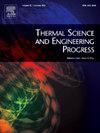在当地社区发展可持续可再生供热的战略管理方法:一个案例研究
IF 5.1
3区 工程技术
Q2 ENERGY & FUELS
引用次数: 0
摘要
在向气候中性社会过渡的过程中,地方可持续能源项目的重要性得到了广泛认可,但地方层面的战略规划往往缺乏结构和一致性。本文提出了一种综合方法,结合现有的战略管理工具,如SWOT分析、因素和战略优先排序的多标准决策方法以及战略制定矩阵,来制定和实施能源部门的可持续发展战略。这一进程分为七个步骤,包括确定国家可持续发展框架、确定战略方向、评估当地情况、评价关键因素的相关性、制定战略和确定业绩指标。通过为斯洛文尼亚一个城市制定36项战略对该方法进行了测试,其中有三项排名靠前的战略作为试点案例实施。对于提议的基于木片的热电联产系统,经济分析表明净现值为144,134欧元,内部收益率为7.2%,超过了5.0%的加权平均资本成本。在第二种情况下,在区域供热系统中利用工业过程产生的余热,每年可能节省超过240万欧元,假设部分公共共同融资,预计五年内投资回报。这些调查结果证实了所建议的方法的实际适用性及其在支持地方当局为能源转型制定有效和经济上可行的战略方面的有用性。本文章由计算机程序翻译,如有差异,请以英文原文为准。
Strategic management approaches for developing sustainable renewable heat supply in local communities: A case study
The importance of local sustainable energy projects in the transition to a climate-neutral society is widely recognised, yet strategic planning at the local level often lacks structure and consistency. This paper presents an integrated methodology combining established strategic management tools—such as SWOT analysis, multi-criteria decision-making methods for prioritising factors and strategies, and strategic formulation matrices—to develop and implement sustainable development strategies in the energy sector. The seven-step process includes defining the national sustainable development framework, identifying strategic orientations, assessing local conditions, evaluating the relevance of key factors, formulating strategies, and determining performance indicators. The method was tested through the development of 36 strategies for a Slovenian municipality, with three top-ranked strategies implemented as pilot cases. For the proposed woodchip-based combined heat and power system, the economic analysis indicated a net present value of €144,134 and an internal rate of return of 7.2%, which exceeds the weighted average cost of capital of 5.0%. In the second case, the utilisation of excess heat from industrial processes in the district heating system suggested potential annual savings of over €2.4 million, with an estimated return on investment within five years, assuming partial public co-financing. These findings confirm the practical applicability of the proposed approach and its usefulness in supporting local authorities in the development of effective and economically viable strategies for the energy transition.
求助全文
通过发布文献求助,成功后即可免费获取论文全文。
去求助
来源期刊

Thermal Science and Engineering Progress
Chemical Engineering-Fluid Flow and Transfer Processes
CiteScore
7.20
自引率
10.40%
发文量
327
审稿时长
41 days
期刊介绍:
Thermal Science and Engineering Progress (TSEP) publishes original, high-quality research articles that span activities ranging from fundamental scientific research and discussion of the more controversial thermodynamic theories, to developments in thermal engineering that are in many instances examples of the way scientists and engineers are addressing the challenges facing a growing population – smart cities and global warming – maximising thermodynamic efficiencies and minimising all heat losses. It is intended that these will be of current relevance and interest to industry, academia and other practitioners. It is evident that many specialised journals in thermal and, to some extent, in fluid disciplines tend to focus on topics that can be classified as fundamental in nature, or are ‘applied’ and near-market. Thermal Science and Engineering Progress will bridge the gap between these two areas, allowing authors to make an easy choice, should they or a journal editor feel that their papers are ‘out of scope’ when considering other journals. The range of topics covered by Thermal Science and Engineering Progress addresses the rapid rate of development being made in thermal transfer processes as they affect traditional fields, and important growth in the topical research areas of aerospace, thermal biological and medical systems, electronics and nano-technologies, renewable energy systems, food production (including agriculture), and the need to minimise man-made thermal impacts on climate change. Review articles on appropriate topics for TSEP are encouraged, although until TSEP is fully established, these will be limited in number. Before submitting such articles, please contact one of the Editors, or a member of the Editorial Advisory Board with an outline of your proposal and your expertise in the area of your review.
 求助内容:
求助内容: 应助结果提醒方式:
应助结果提醒方式:


